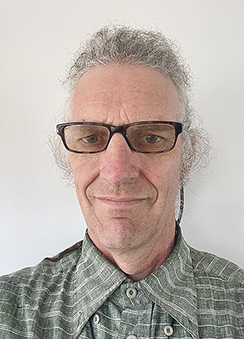Let’s get smarter, and embrace ‘enough’

<em>Ilmars Gravis</em>
Contributed
- We can enjoy a future based on globally equitable access to resources - if we have the will to do this, writes Ilmars Gravis
ONE word most often used to positively describe the health of our current socio-economic system is “growth”, an almost religious idea we must all strive towards, whether that be personally, economically, or socially.
However, if we look to nature and earth systems that allow us to thrive on this planet alongside other species and intertwined with ecological webs, nowhere do we see unchecked infinite growth resulting in positive outcomes.
Despite clear signs of pushing ecological limits, our economic well-being (GDP) is still measured against rising growth and consumption as a proxy for economic health. It is increasingly apparent that our exponential growth and ecological impact is resulting in ecosystem collapse, extinction of species, catastrophic climate change, and geopolitical upheavals (WWF 2024 Living Planet Report).
Climate change and its devastating consequences is only one aspect of our environmental impact. Everything we do and consume has consequences, such as transport pollution, embedded emissions in the products we have come to expect, plastic and chemical pollution, energy and water consumption, or degradation of ecosystems and landscapes.
Is this foundation of our society the most equitable for all members?
Is it fair that our current economic system places the burden of climate chaos and ecological collapse on future generations?
Ending our reliance on fossil fuels is essential, but we cannot comfort ourselves that a business-as-usual future can be based on an appealing story of sustainable growth fuelled by renewable energy with no negative impacts.
We may congratulate ourselves as a country for our green credentials and supposedly equitable society, yet we do very poorly compared to many countries in the world.
According to Oxfam.org.nz, the consumption of New Zealanders produces four times as much carbon emissions as Pacific Island citizens, now experiencing rising sea levels, ferocious cyclones and disrupted weather patterns.
According to the Global Footprint Network, New Zealand has one of the highest Total Ecological Footprints, due to environmental impacts associated with production processes, carbon emissions, land use, and resource consumption (www.theworldranking.com/statistics)
When one looks closely at the recently released list of proposed projects for the government’s Fast Track amendment Bill, the priority given to high-impact resource hungry developments is obvious. These ventures will further embed us into an extractive fossil fuel-driven environmentally damaging way of life (rnz.co.nz 6.10.24).
The flow of political donations behind some of these projects suggest they will primarily benefit those who already profit from high-impact resource extraction and infrastructure development that will not necessarily benefit everyone equally (rnz.co.nz 10.10.24).
Realising the profits for a few means burdening everyone, some more than others, with the environmental costs of these projects well into the future.
Current issues facing our society appear complex, multi layered and alarming. However, this does not make them intractable.
Our current inability to make necessary systems change is due to a lack of political will and entrenched interests, alongside a lack of vision and a failure of imagination. At a personal level we can envision what a post-growth future might look like, measured by a new metric of societal well-being and ecological justice for the worst polluters and environmental vandals.
This does not mean reverting to a joyless and gloom-laden version of the past, but welcoming a future based on globally equitable access to resources. To allow this, the true cost of environmental mitigation must be borne by those with the highest impact, and we must all live within the ecological capacity of a thriving and life-sustaining planet.
This is reflected in the Green Party Charter, in particular:
- Respect the planet and the web of life of which we are one part
- Take the path of caution in the face of serious uncertainty about the consequences of human action
- Think long term and holistically
- Recognise our duty of care towards those who cannot speak for themselves
Our current global, capitalist, and inequitable society is due to geopolitical and historic events over the last millennium.
There are plenty of alternatives, I invite you to envision what your ideal future might look like and share your ideas with friends and whanau because it is in our power to shape historical change.
Instead of embracing growth as something to aspire and strive towards,
I invite you to consider the true measure of our health and well being celebrated in the rarely considered and seldom celebrated idea of “enough”.
- Ilmars Gravis is co-convenor of the Ōpōtiki-Whakatāne branch of the Green Party of Aotearoa. To join your local Green Party Branch contact us at [email protected] or go online at greens.org.nz/members.